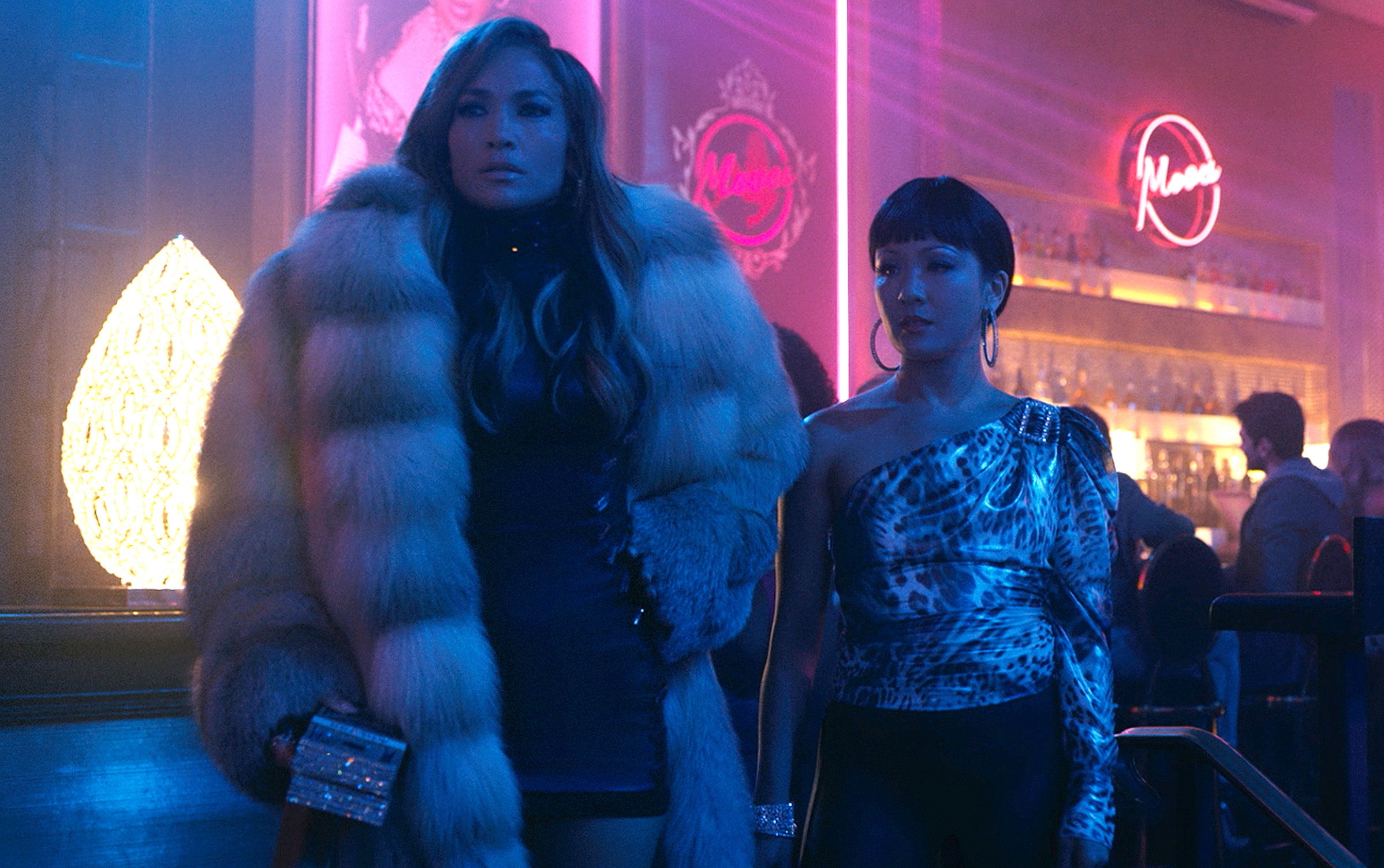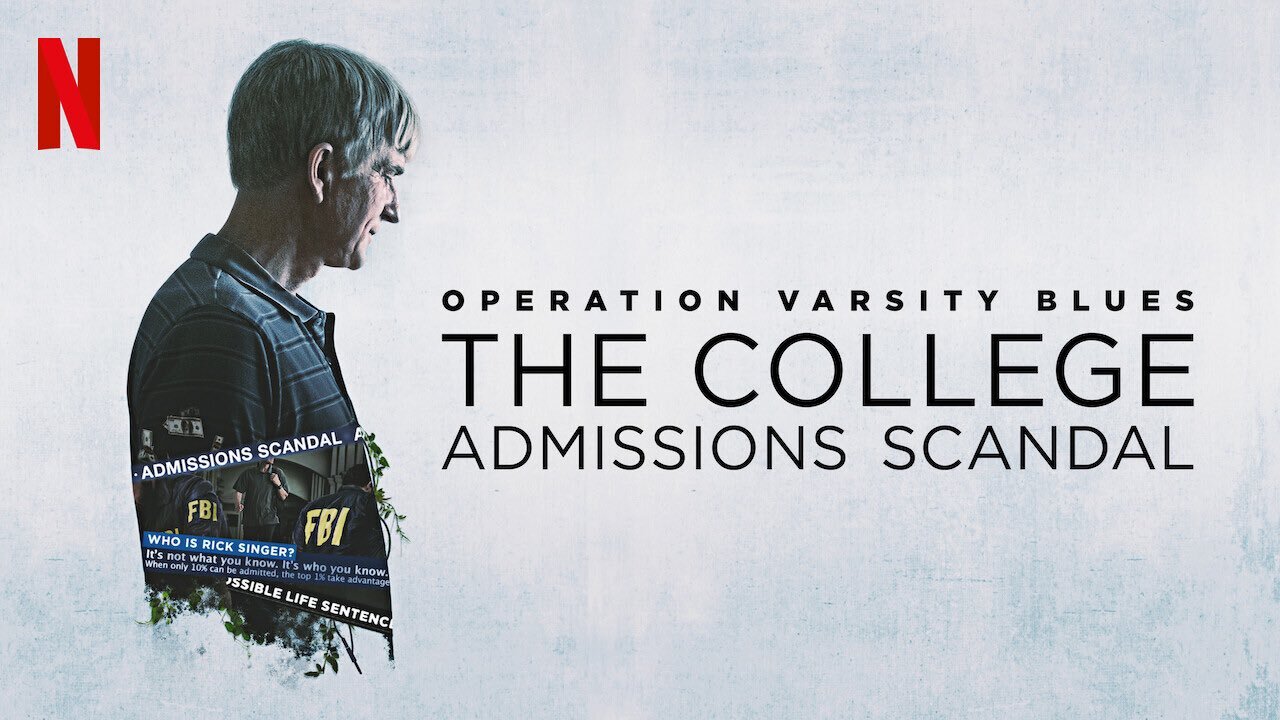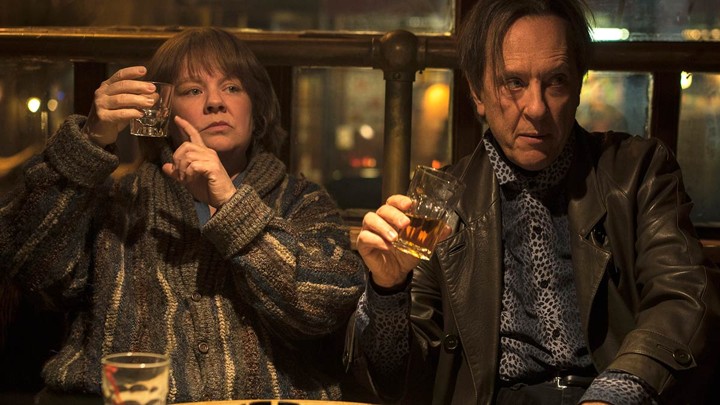Scammer stories are stealing the hearts of TV and movie fans right now, but why?
We look at the wave of con artists and grifters on-screen. Plus, some of the best scammer movies and TV shows.

The latest updates, reviews and unmissable series to watch and more!
You are now subscribed
Your newsletter sign-up was successful
Want to add more newsletters?

ONCE A WEEK
What to Watch
Get all the latest TV news and movie reviews, streaming recommendations and exclusive interviews sent directly to your inbox each week in a newsletter put together by our experts just for you.

ONCE A WEEK
What to Watch Soapbox
Sign up to our new soap newsletter to get all the latest news, spoilers and gossip from the biggest US soaps sent straight to your inbox… so you never miss a moment of the drama!
It seems that we are thoroughly in the age of the scammer. Over the past few years, movies, TV, podcasts and documentaries have been excessively focused on con artists of varying levels of skill and threat who were larger than life or just outright unhinged.
This year alone, we’ve seen the Netflix docuseries breakout The Tinder Swindler — featuring the Israeli con artist Simon Leviev who used the eponymous dating app to target women and get thousands of dollars out of them. Netflix has also debuted Inventing Anna, Shonda Rhimes' drama about Anna Delvey, the convicted fraudster who pretended to be a wealthy German heiress to defraud her friends, banks, and hotels.
Hot on their heels (out March 3) is The Dropout, starring Amanda Seyfried, one of several adaptations of the Theranos case. Elizabeth Holmes, a hotshot CEO, claimed to have radically disrupted the blood-testing industry with a machine that ultimately never worked. The Theranos story will also eventually be a big-screen movie, starring Jennifer Lawrence in the turtleneck-clad lead.
Stories like this have always existed in pop culture. Audiences love a scandal, whether it’s a debonair con artist jetting between exotic locales or a buzzword-spouting Silicon Valley bro who’s desperately trying to fake it until he makes it. What makes the current era different, however, are two elements: one, the lion’s share of these stories are based on true stories and two, there’s a curiously aspirational quality to them.
Ever since Anna Delvey’s story went wildly viral — thanks to two major stories in Vanity Fair and New York Magazine's The Cut— she’s gained a fandom of sorts. Part of it might be pseudo-ironic but there are also plenty of folks who think she’s a Robin Hood-esque anti-heroine trying to reset the scales of financial injustice. Delvey’s viewed as someone who lived a fantasy that we all would like to try — stealing from the rich to give to the poor. In this case, the “poor” being herself, so she could live the luxurious life that’s sold to the world as aspirational.
This mindset ignores the fact that Delvey financially ruined the lives of individuals along with institutions and betrayed the trust of friends, but the myth now prevails. As Jia Tolentino noted in her book Trick Mirror, "It would be better, of course, to do things morally. But who these days has the availability or the time? There are fewer and fewer options for a person to survive in this ecosystem in a thoroughly defensible way."
Not all of these stories are about self-insert power fantasies. Some are cases of good old-fashioned schadenfreude. Perhaps the most infamous example of this is the Fyre Festival — an event that also got the Netflix documentary treatment in Fyre (whose director is next doing a Bitcoin scam documentary) and another documentary on Hulu, Fyre Fraud. Billed as an opulent weekend experience where visitors could have the time of their lives on a part island formerly owned by drug kingpin Pablo Escobar, the music festival turned out to be a mismanaged mess that immediately went viral. The memes were hilarious, with the general tone being that of giddy mockery of the rich kids silly enough to shell out thousands of dollars to watch a Ja Rule show.
The latest updates, reviews and unmissable series to watch and more!
Documentaries followed, as did a slew of coverage of the entire concept of the scam. Fyre Fest was seen as the “right kind” of high-low stakes silliness that's easy to laugh at and with, in a way that many of the conned victims aren't. You can't exactly guffaw at, for example, the patients taken in by Theranos who received faulty medical testing and potentially had their lives put at risk.
Some scams are ones you root for and others are for booing at like they’re pantomime villains, but at the heart of both ideas is a hunt for often futile righteousness. It’s rare that white-collar criminals or massive examples of institutional fraud face any sort of tangible legal repercussions. Seeing Elizabeth Holmes found guilty on several charges of fraud was a genuine surprise because we’re so used to these figures getting away with it. We live with so much injustice that seeing even a sliver of decency prevail feels radical.
Even though scammers are clearly having a moment on screen, we've been entertained by them for years now. Here are some of the best scammer stories.
Hustlers

Based on a true story, Lorene Scafaria’s noir-esque drama detailed how a group of strippers managed to fleece their rich Wall Street clients through a combination of seduction, drugs and embarrassment. While it’s easy to root for the women (including a career-best Jennifer Lopez), Hustlers smartly focuses on the economic crash of the 2000s and the financial disparities it created, especially for working-class women. Their form of sleazy justice was undoubtedly satisfying for many but led to dire consequences.
Where to watch Hustlers:
- In the US: streaming on Hulu.
- In the UK: streaming on Netflix.
The Inventor: Out for Blood in Silicon Valley

The first of the glut of Elizabeth Holmes stories, Alex Gibney’s documentary offers a concise breakdown of Theranos’ crimes, how it managed to become a multi-billion-dollar enterprise based off of hype and not much else, and some of the weirder goings-on that led to one of Silicon Valley’s most infamous downfalls.
Where to watch The Inventor: Out for Blood in Silicon Valley:
- In the US: streaming on HBO Max
- In the UK: streaming on Sky TV.
Operation Varsity Blues

Celebrities like Lori Loughlin and Felicity Huffman were embroiled in a nationwide scam wherein rich parents gave hundreds of thousands of dollars to get their kids into elite colleges they weren’t qualified to apply to. From paying other people to take tests to faking sports skills, the investigation (detailed in this Netflix documentary) exposed the high stakes world of college admissions and how money can help to bypass issues of merit.
Where to watch Operation Varsity Blues:
- In the US and UK: available on Netflix
Can You Ever Forgive Me?

Melissa McCarthy rightly received an Oscar nomination for her performance as Lee Israel, an impoverished writer who made money through literary fraud, faking letters and signatures from the likes of Noel Coward and Ernest Hemingway. Marielle Heller’s tender and melancholy film depicts an unsympathetic figure driven to painful lengths due to unavoidable poverty.
Where to watch Can You Ever Forgive Me?:
- In the US and UK: available for digital rental on Prime Video, Google Play, Apple TV
Catch Me If You Can

Years before the scammer became ubiquitous in pop culture, Steven Spielberg made one of his most underrated stories, a snappy noir-esque drama about Frank Abagnale Jr., a man who claimed to have impersonated a doctor, lawyer and a pilot all while being pursued by the FBI. That his story continues to be called into question all these decades later is a reminder of how endlessly appealing the scammer figure can be.
Where to watch Catch Me If You Can:
- In the US: available to rent digitally through Prime Video, Google Play, Apple TV and more
- In the UK: available to stream on Virgin TV Go.
Kayleigh is a pop culture writer and critic based in Dundee, Scotland. Her work can be found on Pajiba, IGN, Uproxx, RogerEbert.com, SlashFilm, and WhatToWatch, among other places. She's also the creator of the newsletter The Gossip Reading Club.


